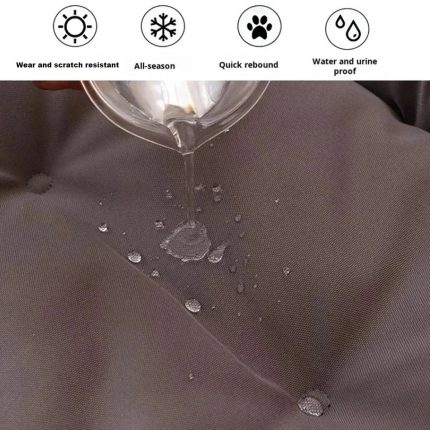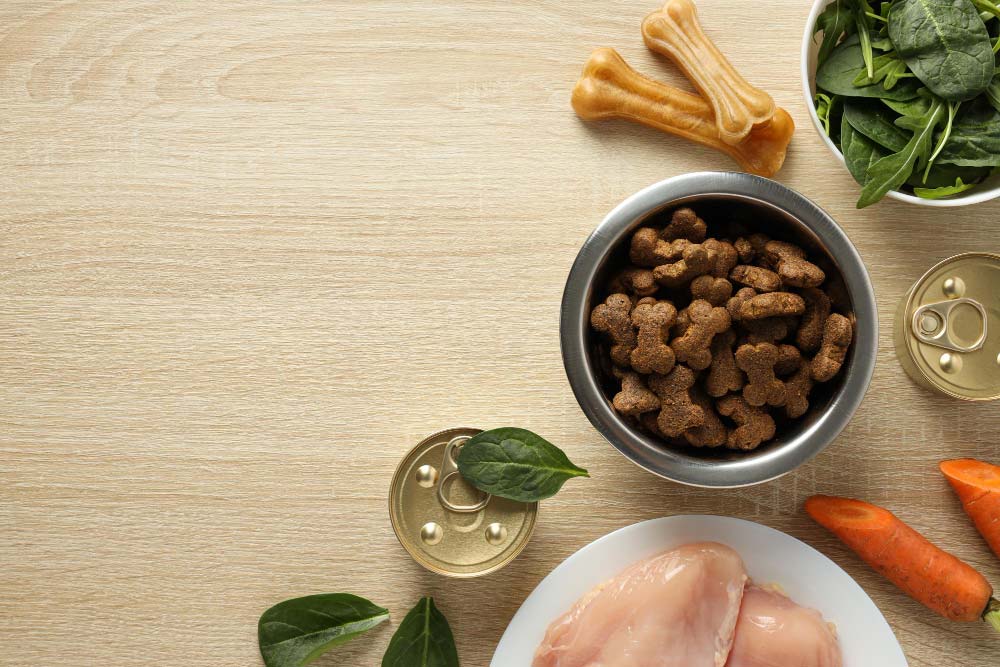Blog
What to Feed Your Pregnant Dog? Expert-Approved Guidelines for a Smooth Pregnancy

Proper nutrition is paramount during a dog’s pregnancy, ensuring the health and well-being of both the mother and her developing puppies. As a pet specialist, I cannot stress enough the importance of a well-balanced, strategic feeding plan tailored to meet the unique nutritional needs of expectant dogs. This article will provide you with practical advice and essential guidelines to help your pregnant dog thrive.
Understanding Nutritional Needs During Pregnancy
Pregnancy in dogs typically lasts 63 days, during which their nutritional requirements evolve significantly. Adjusting your dog’s diet to meet these changes is crucial for a smooth pregnancy and the delivery of healthy puppies.
1. Caloric Requirements
Pregnant dogs require 30-60% more calories than usual by the later stages of pregnancy. However, this increase should be gradual:
- Maintain her normal intake during the first four weeks.
- From week five onwards, increase her food portions by 10% weekly.
- By the final week, she should be consuming up to 50% more food than usual.
Key Tip: Use a kitchen scale to measure food portions accurately, preventing overfeeding and obesity.
2. Protein: The Foundation of Fetal Development
Protein is essential for the growth and development of puppies. According to the Association of American Feed Control Officials (AAFCO), pregnant dogs should consume diets with at least 22.5% protein on a dry matter basis. High-quality, animal-based proteins—like chicken, beef, or fish—should be the primary ingredient in her food.
Why It Matters: Protein supports fetal growth and milk production, and studies have shown that puppies born to mothers on high-protein diets have stronger immune systems and improved growth rates.
3. Fats and Omega-3 Fatty Acids
Fats are a concentrated energy source crucial for mother and puppy health. Pregnant dogs benefit from diets containing 15-20% fat, with particular emphasis on Omega-3 fatty acids like DHA. DHA supports brain and vision development in puppies.
Practical Tip: Add a teaspoon of fish oil to your dog’s meals to boost DHA levels. Always consult your veterinarian before introducing supplements.
4. Vitamins and Minerals
Pregnant dogs need balanced levels of vitamins and minerals to support their health and that of their puppies:
- Folic Acid: Prevents birth defects.
- Calcium and Phosphorus: Essential for bone development and milk production. However, avoid calcium supplements unless prescribed by a veterinarian, as excessive calcium can lead to complications.
Choose high-quality commercial dog food designed for all life stages or specifically for pregnancy and lactation to ensure these needs are met.
Feeding Strategies for Pregnant Dogs
To implement these nutritional guidelines effectively, follow these feeding strategies:
1. Small, Frequent Meals
As pregnancy progresses, a dog’s abdomen becomes crowded, making it difficult to eat large meals. Offer 3-4 smaller meals daily during the last trimester to prevent discomfort and ensure she meets her caloric needs.
2. Gradual Dietary Changes
If you’re switching to a new food, do so over 7-10 days. Gradual transitions reduce the risk of digestive upset.
3. Avoid Grain-Free Diets
Recent studies, including a 2019 FDA report, link grain-free diets to heart issues in dogs. Opt for foods containing whole grains for necessary nutrients and fiber.
Homemade Diets: Proceed with Caution
While homemade diets can seem like a personalized option, they often lack the precise balance of nutrients required during pregnancy. Studies indicate that 95% of homemade diets are deficient in at least one essential nutrient.
If you prefer a homemade diet, consult a board-certified veterinary nutritionist to create a tailored meal plan. This ensures your dog receives the right proportions of protein, fats, vitamins, and minerals.
Addressing Digestive Issues
Pregnancy can sometimes cause nausea and vomiting, especially in the early stages. To manage this:
- Offer easily digestible foods like boiled chicken and rice.
- Feed smaller portions more frequently.
- If vomiting persists for over 24 hours, consult your veterinarian immediately.
Final Thoughts
Proper nutrition is the foundation of a healthy pregnancy for dogs. By understanding their changing needs and following expert guidelines, you can ensure both mother and puppies have the best possible start. Remember:
- Increase caloric intake gradually.
- Prioritize high-quality proteins, fats, and balanced vitamins.
- Feed small, frequent meals during the later stages of pregnancy.
Regular veterinary check-ups are essential for monitoring your dog’s health and tailoring her diet as needed. With the right care and nutrition, you’re not only supporting a smooth pregnancy but also setting the stage for healthy puppies with strong immune systems and proper development.











